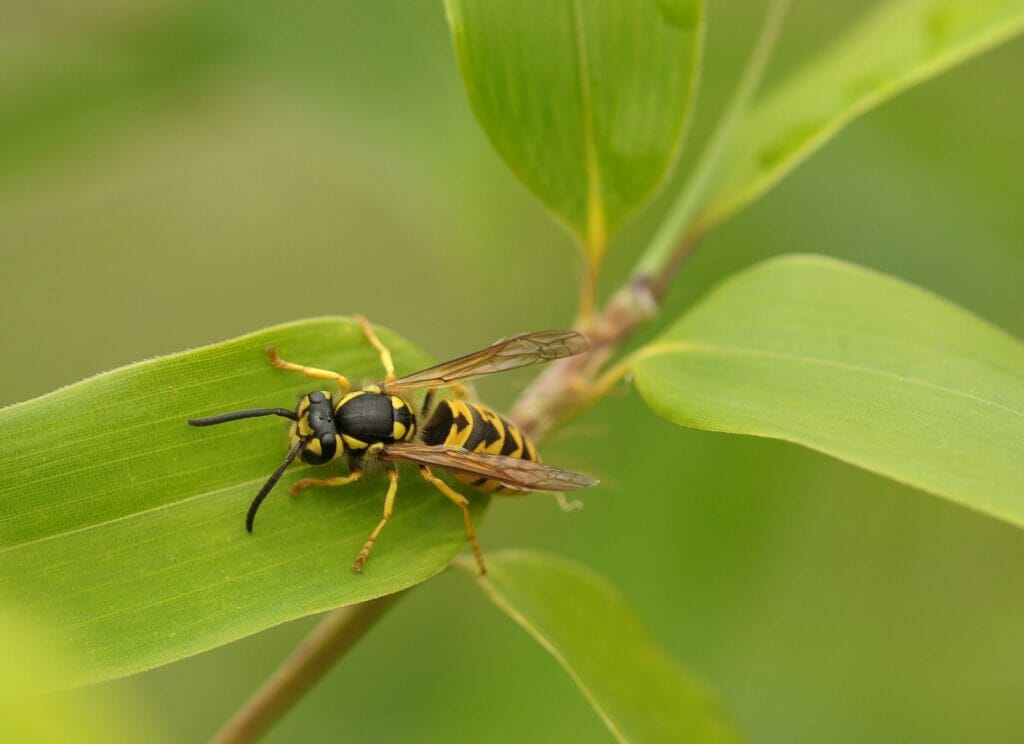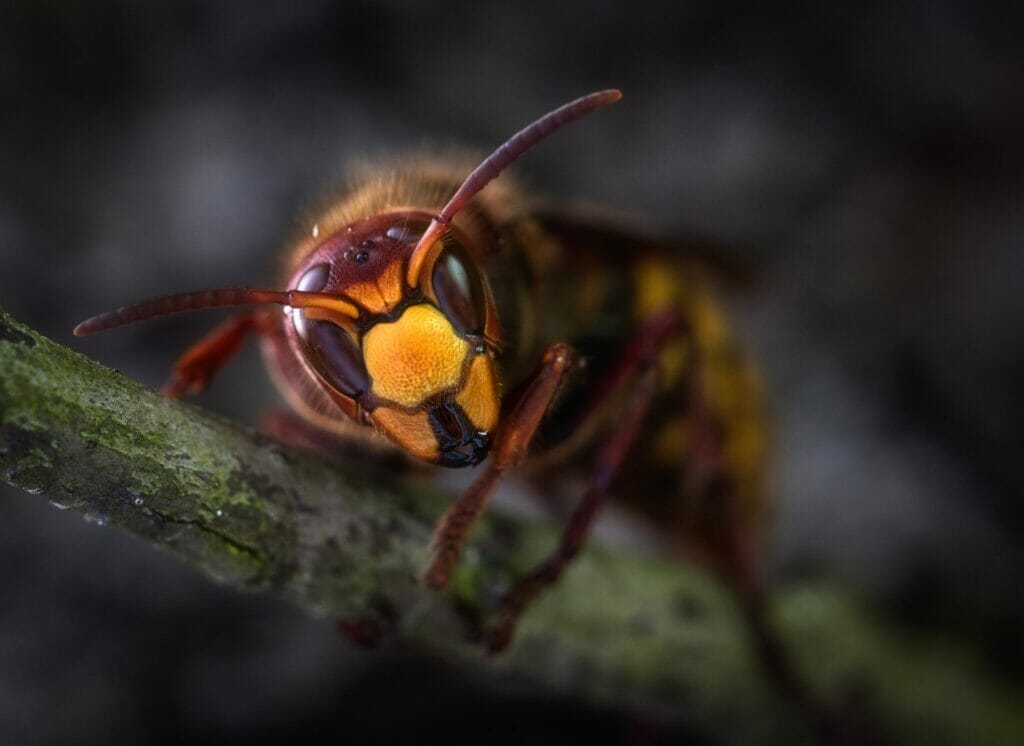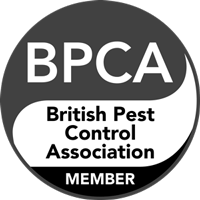Table of Contents
The reason you’re here is that you want to know, do wasps hibernate in the winter? YES, wasps do hibernate in the winter, but it will only be the queen wasp who does so, as the rest of the colony will die due to a lack of food in the winter period.
Have you ever wondered where wasps vanish in the winter months? Well, we’re here to give you all the information you need on wasps, their colonies, where you’ll find them and how to remove them should they be within your home or business premises.
Wasps vs Winter
Wasps, with their painful stingers, can warn off any predators who try to attack them. But of all the attacks that wasps face, there is one thing their sting cannot save them from – the winter.

Throughout the winter, wasp colonies will begin to die off, not due to the cold, which is what some people tend to think, but due to the lack of food. With this being sparse over the winter period, they die due to starvation. Of an entire colony, only one wasp will survive, the queen. However, sometimes even a queen wasp will meet their maker, as they can often be eaten by other insects when they hibernate.
A wasps colony
The heartbeat of a wasp colony is, of course, the queen wasp. They (as we mentioned earlier) are the reason wasp colonies survive over the winter period. After a queen wasp hibernates over winter, it will come out of hibernation, usually between March and May. However, they can sometimes come out of hibernation too early during a warmer winter which will cause them to die due to the lack of food.
When out of hibernation, the queen wasp needs to decide where to build its new colony and construct its new nest. You’ll find that queen wasps build their nests within small cavities, roof spaces, sheds and also on trees. Once the queen is happy with the site she has found, she will build a nest. The nest will be made from chewed wood pulp and saliva. Within the nest, she will lay somewhere between ten and twenty eggs.
The ten or twenty eggs that the queen lays will hatch into larvae, and when the wasps are at this stage, the queen will feed them with protein-rich insects. Although a wasp only ever eats rotted fruit, the queen will change her appetite to ensure the larvae survive, which is why they eat and feed insects to the larvae due to their high amounts of protein.
The larvae will then spin a silk cap over the top of their cell, where they will eventually pupate into an adult worker’s wasp; this is similar to how caterpillars become butterflies. These adult worker wasps are all female can lay eggs like the queen, but these are not fertile and only produce male wasps, known as drones. Drone wasps will eventually take over the colony, ensuring that the nest is built and that the new larvae are being fed. Now the queen wasp can do her job of laying eggs.
Once the queen wasp has enough drone or worker wasps to look after the larvae themselves, she will plant eggs that produce between 5,000 wasps within one colony, and sometimes as many as 10,000 wasps will be attached to one nest! Then, towards the end of the year, the queen will produce male drones and fertile females – the new queens.
Where do wasps hibernate?
A queen wasp will often hibernate in the winter, but this doesn’t necessarily mean they all survive; only as little as two queen wasps will survive the winter out of 4,500 queen wasps each year. These queens will hibernate in sheltered places or crevice’s that they find in buildings or trees.
Essentially, queen wasps will be looking for sheltered places so that they can survive the chills of winter. However, due to them hiding in buildings crevices, they will often be met by predators, including spiders and other larger insects – this is why so few wasps survive the winter period.
So, you might be wondering whether it’s likely that these queen wasps that will have hibernated in your home over winter will begin to start building their colony in your home. Well, you’d be right. Once the queen wasp has come out of hibernation, they will look for the perfect space to restart their colony, so the inside of your property might be the ideal spot.
What does a queen wasp look like?
A queen wasp is the leader of the nest, and her job is to lay eggs. A queen’s health is vitally important, so she will always be protected by the rest of the colony. It’s pretty tricky to pick out a queen, especially when hundreds if not thousands of other wasps surround and protect her. You’ll only tend to see queen wasps at the beginning of spring (when they come out of hibernation) or towards the end of summer (when they go back into hibernation).
How to identify a queen wasp:
- A queen’s size was always bigger than that of ‘drone’ wasps, and they measure between 1.2-2.7cm.
- They have bright yellow and black stripes with triangular-shaped heads.
- A queen wasp will also have a ‘pointy’ waist, which a drone wasp will not have.
Should I kill a queen wasp?
Killing a queen wasp will likely not affect whether a nest is built in your home, as it’s likely to have already been created. You might be thinking that killing a queen wasp will mean that no more wasps will be produced; sadly, you’d be wrong. Instead, what happens is a new queen wasp will be selected from the many other queen wasps located within the colony, and the cycle continues.

How do I get rid of a wasp nest?
Instead of attempting to remove the wasp nest yourself and potentially putting yourself at risk of attack, you should find a professional to do the job for you. And that’s where we come in!
Here at Integrum, we provide wasp nest removal in London and the South of England.
We are a family-owned pest control specialists located in London, with over 70 years of experience. Our experience allows us to identify and remove wasps nests, so you don’t have to. However, if you want to remove a wasps nest without professional help, check out the ‘how to get rid of a wasps nest’ blog post, where we take you through the steps, although this isn’t something we recommended.
We can offer a wasp removal service that will allow us to remove a wasps nest after just one visit from our highly skilled technicians. The insecticides that we use are used only by professionals, so our treatment is much more effective than other insecticides that you may find in shops.
We don’t just offer a service for homeowners either, as we also specialise in removing wasps from your commercial premises as well. Our experience offering pest control in London has meant that we have removed wasps from hundreds of business premises. So if you require a wasp control expert, then our team will be able to remove the wasp’s nest, so you can continue trading at your business.
We’re always happy to help anyone with a wasp problem within their homes or commercial premises. So give us a call on 020 8914 7894 or pop over an email to our highly skilled team at [email protected] detailing your issue, and we’ll get back in touch with you as soon as we can.




